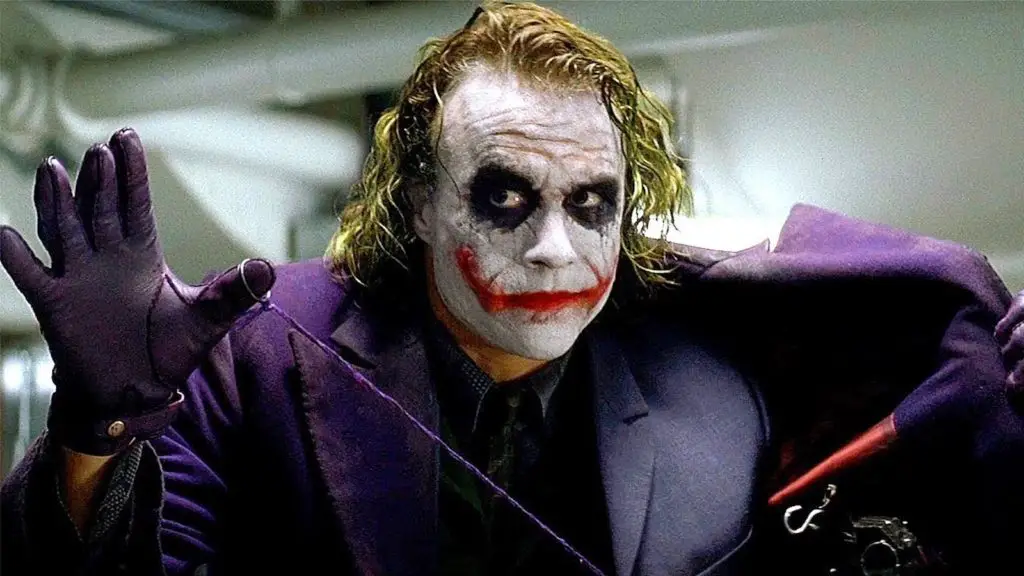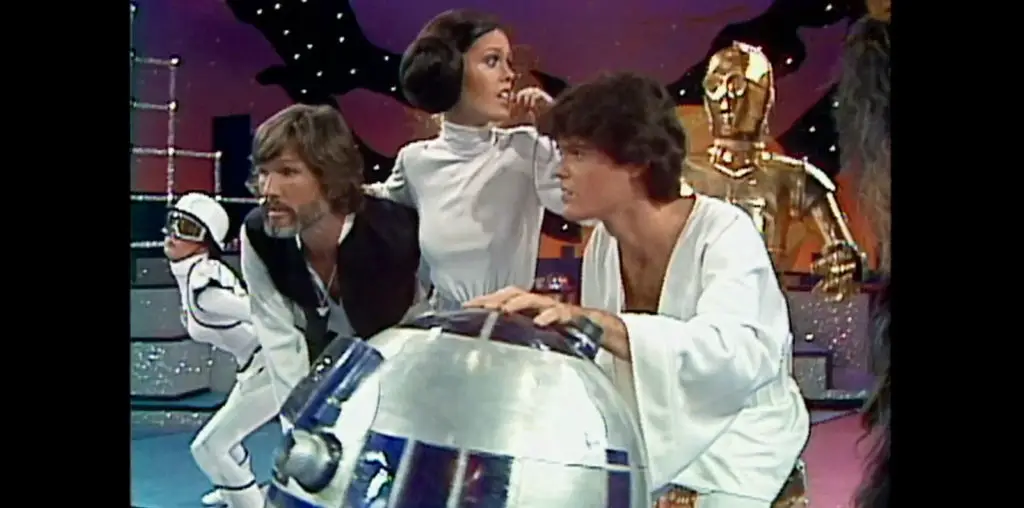
The strongest woman in “Dodge City” isn’t Olivia DeHavilland. That’s another case of headstrong, which is a good trait, and one which is a product of her onscreen relationships with Errol Flynn which don’t always start out so genially. No, the woman in question here is Mrs. Cole (Gloria Holden), who, albeit a few small appearances here, is some kind of woman. First, her husband Matt (John Litel), a buyer of steers, is bopped off by Yancey (Victor Jory), an associate of Jeff Surrett (Bruce Cabot) who runs the town of Dodge City, where all seedy dealings, gambling, drinking, and shooting is welcome to the point where it’s not good news for Colonel Dodge (Henry O’Neill), who helped build the railroad, which in turn caused this rowdy place to sprout up. Then her son Harry (Bobs Watson) is accidentally dragged by frightened horses, leaving his life behind. When she’s in the newsroom of the Dodge City Star, talking to Abbie Irving (Olivia DeHavilland) about having to sell her house just to keep on living, it’s a sad moment in a town that doesn’t allow it, save for face-to-face moments like this. This is the type of woman who deserves to live out the rest of her unfortunate life peacefully, but in this town, people are lucky if sleep can be had at any hour.
The fistfights, enormous brawls, and shootouts are not without their framework and it comes with Errol Flynn on the saddle of a horse as Wade Hatton, moving steer on through from Texas to Kansas with Rusty Hart (Alan Hale, hearty as always) and Tex Baird (Guinn ‘Big Boy’ Williams). Wade sees his job as only bringing these animals to where the men on the railroad are working so they can eat. But Colonel Dodge implores him to consider ridding Dodge City of Surrett and everything he brought with him, like the saloons. Why of course he would ask Wade! Who wouldn’t see him as the epitome of leadership and civilized nature that this very salty town needs?
Wade can’t fathom becoming the Sheriff of this town, until the death of Harry Cole propels him into the position. And from there on out, further proof that 1939 was possibly the greatest year for movies continues with this Western, handled assuredly by Michael Curtiz who makes his love known for all things big and a few shadows thrown in too. And by big, really big! When cinematographer Sol Polito’s camera moseys on into the Gay Lady Saloon, it’s a breathless sight what with Ann Sheridan dancing and singing on the small stage, the roulette wheels turning, the card games still dealing and the drinks always are being poured. When it comes time for that big broad brawl, it’s not only a marvel of movie excitement, but a little extra for the knowing mind. Since “Dodge City” takes place in 1866 Kansas, after the Civil War, there are still some mighty strong feelings and opinions over the war. And in a precursor to the “Die Wacht Am Rhein/La Marseillaise” musical duel in “Casablanca”, the Southerners and Northeners in the bar sing the songs that mean the most to them, one trying desperately to drown out the other and that it was leads to one of the most impressive brawls on film. It’s big, loud, full of chairs and tables being smashed to bits, and it’s a hell of a way to spend a few minutes away from the story.
As mentioned a while back, the Errol Flynn/Olivia DeHavilland relationship is just as cool as in some of their other films together. Abbie is cold to Wade for causing the death of her brother, though her drunk brother, probably still stricken over the death of their father, caused the stampede that ran right over him. Naturally, she gradually warms up, though that’s what was always noteworthy about their relationships. They never took each other to heart right away. There was time for that but not when there was much to be done in the way of other characters, such as Alan Hale’s Rusty, an equal co-star to Flynn. Providing the comedic bits of the film, Hale looks like a sheepish fellow at first, but knows his place when there’s fighting to be done.
Indeed the Old West is wild here, and Bruce Cabot and Victor Jory make most agreeable villains. Jory does enough sneering for the both of them, and Cabot is appropriately unscrupulous. Anything that could be brought to a Western was done so in “Dodge City”. And if you listen closely to Max Steiner’s score, there are slight shades of his work on “Gone with the Wind” in there. Or maybe it was the other way around, a kind of prototype test to see if this highly dramatic music would work for “Gone with the Wind” in some small part. Now to the DVD.
Leonard Maltin is one of many historians that keep on giving to the DVD format, especially by way of Warner Bros. and their Warner Night at the Movies selections, which seek to reflect a time at the movies for whatever year a film was released. For “Dodge City”, Maltin’s introduction fits everything to history at the time, even explaining that Harry B. Warner wanted “Sons of Liberty” made not only for himself, but for a rousing bit of patriotism needed in a grim time of war, to which the United States adopted an isolationist policy. There is a pleasing variety of here, beginning with disbelief. A trailer for The Oklahoma Kid, also released in 1939, introduces James Cagney as the Oklahoma Kid, a silly notion in which Cagney looks like he decided to play around for a time in the costume department at Warner Brothers. He doesn’t look believable in a Western and Humphrey Bogart gets in the act as well, a shocking pairing. Next, a Movietone newsreel announces Hitler’s capture of Warsaw along with two other stories, and then comes Sons of Liberty, directed by Michael Curtiz and starring Claude Rains as Hyam Salomon, George Washington’s financial advisor who in this twenty-minute drama punctuated by a few bouts of action, gets into some scuffles with the British while quietly rallying to raise $400,000 for Washington to keep his troops going, many of which have decided to abandon Washington unless there’s money for all their necessaries such as food and clothing. There’s a more reserved rah-rah patriotism in here, but it’s quite evident nonetheless.
A Merrie Melodies cartoon, made by the immortal Tex Avery is entitled Dangerous Dan McFoo and contains all the standbys of one of his cartoons, such as the improbable made probable (a full-grown horse falling out of a boxing glove), and some fine visual gags. Some disappointment arises with Dodge City: Go West, Errol Flynn which is far too short and gives lip service where it is expected. Some great film historians are on hand to gab, such as Rudy Behlmer, but only the discussion about the supporting actors in the cast provides any value. What happened here? There’s a huge brawl which brings nearly everything down in the saloon except for the darn ceiling, a heavy fire on board a train, and a town which doesn’t spare even the most intricate detail. Yet, there’s nothing to be found here on that. This could be the only time that “Dodge City” is given this kind of well-to-do treatment on DVD and we’re not left with much about the actual making of the film. The end of all this material comes with the trailer, which is an anomaly considering that it’s not actually a trailer, but footage of the world premiere of the movie in the real Dodge City. While the stars of today are more content with stepping out on the town at Westwood or any other theater equipped for a premiere, the studio really let the high-priced balloons fly because television wasn’t around then and news had to be carted around somehow about these films. And in order to make it worth writing about, they really went all out as shown here.
“Dodge City” is a fine time in the Western genre. It’s a way to see Errol Flynn in a completely different setting (first of eight times he’d be in the West), and it’s good for you!

